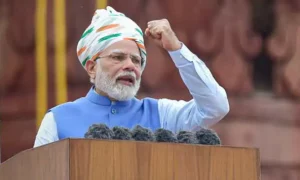Income Tax Return: The individual taxpayers who fall under the seventh proviso of Section 139(1) will have to pay a late fee even if their gross total income is lower than the basic exemption limit.
Income Tax Return Latest Update: The last date for filing income tax returns (ITR) for FY 2020-21 was on December 31, 2021. The individual taxpayers who have not yet filed their ITR will have to pay a late fee at the time of filing a belated ITR.
In the meantime, the I-T department said last week that nearly 5.89 crore income tax returns for the 2020-21 fiscal (ended March 2021) have been filed on the new e-filing portal till December 31 deadline. Of this, more than 46.11 lakh ITRs were filed on the last date or December 31 alone.
“Nearly 5.89 crore Income Tax Returns (ITRs) have been filed on the new e-filing portal of the Income Tax Department as on 31st December, 2021, the extended due date,” the Central Board of Direct Taxes (CBDT) said in a statement.
The taxpayers must note that the individuals with taxable income above Rs 5 lakh will have to pay a penalty of Rs 5,000 for filing ITR after the due date. On the ither side, the penalty amount is Rs 1,000 for those with taxable income below Rs 5,00,000.
However, there are some individuals who can file their income tax without paying any penalty even after the due date. As per the income tax laws, the people with gross total income below the basic exemption limit will not have to pay a late fee for filing ITR beyond the due date. However, the exemption limit applicable to an individual depends on the tax regime. And in the new regime, where there are no common exemptions, the basic exemption limit is Rs 2.5 lakh irrespective of age.
And in the old income tax regime, the basic exemption limit would depend on the age of the individual taxpayer.
The taxpayers must note that in the old tax regime, the basic exemption limit for individuals below 60 years is Rs 2.5 lakh and it is Rs 3 lakh for individuals above 60 years but below 80 years. However, the basic exemption limit for people above 80 years of age is Rs 5 lakh.
If these terms apply to an individual taxpayer, then they will be able to file ITR without a late fee even after the due date.
However, there are exceptions for certain taxpayers who fit into basic exemption limit criteria. They required to mandatorily file ITR even if the gross total income is lower than the basic exemption limit.
The individual taxpayers who fall under the seventh proviso of Section 139(1) will have to pay a late fee even if their gross total income is lower than the basic exemption limit.
These individuals fall under seventh proviso to Section 139(1):
- The individuals who have deposited an amount or aggregate of the amounts exceeding Rs 1 crore in one or more current accounts maintained with a banking company or a co-operative bank.
- The individuals who have incurred an expenditure of an amount or aggregate of the amounts exceeding Rs 2 lakh for himself or any other person for travel to a foreign country.
- The individuals who have incurred expenditure of an amount or aggregate of the amounts exceeding Rs 1 lakh towards consumption of electricity.





































